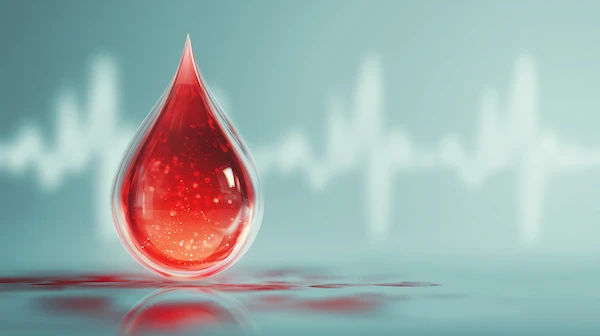When Should You Book a Hormone Screening? Age, Symptoms, and Lifestyle Triggers
Learn when to book a hormone screening based on age, symptoms, and lifestyle triggers. Discover the benefits of early testing for better health and well-being.


If you’ve been feeling “off” lately, tired all the time, struggling with weight gain, irregular periods, low mood, or poor sleep, it may not just be stress or age. Your hormones could be trying to tell you something. Hormones are powerful chemical messengers that affect nearly every function in the body, from metabolism and fertility to mood and energy levels. When they fall out of balance, even slightly, they can disrupt your well-being in ways that are often hard to pinpoint. So how do you know when to do a hormone test? Should you wait until symptoms become unbearable, or is it better to screen early as part of a proactive health check? This article explores the right timing for hormone screening based on age, symptoms, and lifestyle factors, along with how hormone screening benefits your long-term health.
What Is Hormone Screening?
Hormone screening is a blood test (or panel of tests) that measures the levels of key hormones in your body. Depending on your age, gender, symptoms, and health goals, your doctor might assess hormones such as:
- Thyroid hormones (TSH, T3, T4)
- Sex hormones (oestrogen, progesterone, testosterone)
- Cortisol and DHEA (stress and adrenal function)
- Insulin and blood sugar markers
- Reproductive hormones like FSH, LH, and prolactin
Each of these hormones controls a specific body function, but they’re also deeply interconnected. An imbalance in one can ripple through others. That’s why comprehensive hormone testing is often more informative than testing a single hormone in isolation.
Schedule an Assessment and Get Your Health Checked
When to Do Hormone Test: A Life-Stage and Symptom-Based Guide
There is no universal age to start hormone testing. The right time depends on personal health history, age, symptoms, and goals. Here’s a breakdown of when hormone screening makes the most sense.
1. In Your Late 20s to Mid-30s: Setting a Wellness Baseline
If you are generally healthy but want to track your wellness or start family planning, this is a good time to get your first hormone screen. At this age, your hormones are typically in balance, so testing gives you a helpful reference point.
Why test now?
- You’re starting to notice cycle changes
- You want to freeze your eggs or delay pregnancy
- You’re dealing with mood swings, fatigue, or weight gain that doesn’t add up
- You’re beginning to take supplements or considering hormonal birth control
Recommended test:
1. Apollo Women's Health Check - Essential
Book an Apollo Women's Health Check - Essential
Schedule an Apollo Basic Hormone Check
2. When Trying to Conceive or Facing Menstrual Irregularities
If you’ve been trying to conceive without success, or if your periods are becoming unpredictable or painful, hormone screening is essential. Even subtle hormone shifts can affect ovulation, fertility, and uterine health.
Common symptoms to watch for:
- Irregular or missed periods
- Acne, hair thinning or facial hair (possible PCOS indicators)
- Breast discharge (not related to pregnancy)
- Sudden weight changes or low libido
Key tests to consider:
1. FSH, LH, and Prolactin, Serum Test
Schedule a FSH, LH, and Prolactin, Serum Test
2. Apollo Fertility Profile - Female
Book an Apollo Fertility Profile - Female
3. Age 40 and Above: Menopause and Metabolic Shifts
From your early 40s, hormonal fluctuations become more pronounced. Oestrogen, progesterone, and testosterone levels start to shift, sometimes triggering symptoms of perimenopause or low thyroid. Hormone testing at this stage helps manage midlife health more confidently.
Watch out for these symptoms:
- Hot flushes or night sweats
- Difficulty sleeping or concentrating
- Unexpected weight gain, especially around the belly
- Irregular periods or changes in menstrual flow
- Vaginal dryness, mood dips or joint pain
Recommended tests for 40+ adults:
1. Apollo PCOD Profile Advanced
Schedule an Apollo PCOD Profile Advanced
2. TSH - Thyroid Stimulating Hormone
Book a TSH - Thyroid Stimulating Hormone
Hormone Screening Benefits: Why Early Detection Matters
Many hormone-related problems develop slowly over months or even years. By the time clear symptoms show up, the imbalance may already be affecting your heart health, metabolism, or fertility. Regular hormone screening offers the following benefits:
- Early diagnosis of thyroid disorders, PCOS or menopause-related issues
- Customised treatment plans instead of symptom-based guessing
- Improved energy, better mood and more predictable cycles
- Support for healthy weight management and muscle function
- Reduced risk of osteoporosis, cardiovascular issues or type 2 diabetes
Lifestyle Triggers That Signal a Hormonal Imbalance
Sometimes your lifestyle, not just age, can push your hormones out of balance. Here are key triggers that may warrant a hormone screening:
1. Chronic Stress or Burnout
Constant stress elevates cortisol, which can suppress thyroid function and disrupt oestrogen or testosterone. If you’ve been running on empty for weeks or months, it’s time to get your levels checked.
2. Poor Sleep and Irregular Routines
Inconsistent sleep affects melatonin, cortisol and insulin regulation. Shift workers or new parents, for example, often show hormone disruption.
3. Rapid Weight Gain or Loss
Sudden changes in body weight can affect insulin, leptin and sex hormones—sometimes triggering issues like insulin resistance or amenorrhoea.
4. Over-Training or Under-Eating
Too much high-intensity exercise combined with not enough calories can cause hormonal burnout, particularly in women (known as Relative Energy Deficiency Syndrome).
5. Frequent Fatigue, Brain Fog, or Low Libido
These may be signs that your thyroid, adrenal or sex hormones are imbalanced—even if your diet and lifestyle seem “normal”.
Test recommendation based on lifestyle triggers:
1. Apollo Stress Impact Management
Book an Apollo Stress Impact Management Test
How and When to Book the Tests?
Here’s a quick guide on the best time to take common hormone tests, and how you can easily book them online through Apollo 24|7 for accurate, convenient results.
1. Best time for testing:
- Thyroid and cortisol: Morning, on an empty stomach
- Female fertility hormones (FSH, LH, Prolactin): Day 2 or 3 of menstrual cycle
- Testosterone (men or women): Early morning is ideal
Always inform your doctor about medications, contraceptives, or supplements as they may affect your hormone levels.
2. How to book easily with Apollo 24|7:
Apollo 24|7 offers at-home sample collection with doctor-reviewed reports. You can browse packages by symptom, organ, or wellness goal.
When Not to Delay Hormone Screening?
You should never delay hormone screening if you have:
- Missed periods for more than 3 months (and not pregnant)
- Unexplained weight changes or rapid hair loss
- Persistent low energy or mood changes
- Night sweats or hot flushes before age 45
- New sexual health issues like low libido or erectile dysfunction
Ignoring these signs may lead to delayed diagnosis of serious conditions such as PCOS, thyroid disease, adrenal dysfunction or early menopause.
Conclusion
Whether you are actively planning for a baby, managing midlife changes, or simply looking to optimise your wellness, hormone screening is one of the smartest health checks you can do. Knowing when to do hormone test, based on age, symptoms or lifestyle, can help detect imbalances early, before they affect your quality of life. The hormone screening benefits extend beyond reproductive health. They support better energy, immunity, metabolism, and long-term disease prevention. Thanks to Apollo 24|7, getting tested is easier than ever. You can book tests online, get home sample collection, and receive doctor-reviewed results, all with the click of a button.






